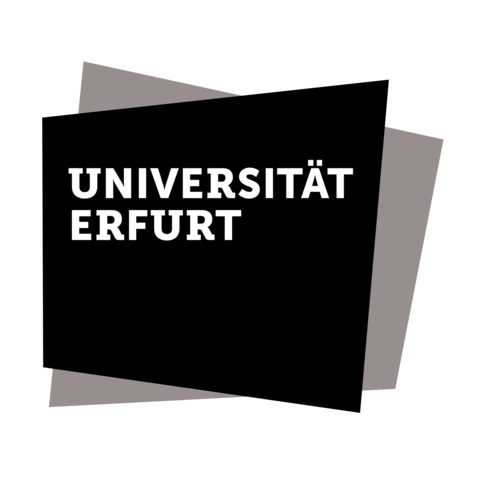Formats on the conference day
Impulses
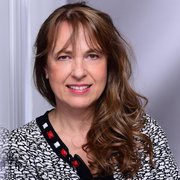
Oksana Arnold, Erfurt University of Applied Sciences: "ChatGPT in teaching" - desire and reality - from the perspective of an AI professor (16.11., 10.30am, Room 6.1.36 and BBB1)
The eTeach Annual Conference 2023 will be held under the motto "Between Bibo and Bot: Students in view" and will thus address a very topical and hotly debated issue of 2023: How does the availability of ChatGPT change teaching, learning and examining? Do we lecturers have to teach and, above all, examine our students differently? Is there a risk that we will not assess students' performance, but that of ChatGPT in assignments, final papers, presentations and projects? Does it make sense to ban ChatGPT to minimize the risk? Or can the technology of "large language models" in combination with transformer architectures not be integrated into teaching and learning in a meaningful way? As an AI professor, I am in favor of integrating chatbots into teaching. So in the summer semester of 2023, ChatGPT quickly became a central element in the "Introduction to AI" module. We looked at the architecture and functionality of ChatGPT in detail, but also had the chatbot itself explain it to us. We experimented a lot and used ChatGPT as a test environment for central questions of symbolic AI. This gave us a good idea of where we stand in the field of AI research and where we need to go next. If chatbots like ChatGPT stimulate thinking and increase the participation of students, then the learning process is also improved and the learning objectives are better achieved. The presentation will provide case-based insights into how ChatGPT works, its potential and limitations, how it can be integrated into teaching in an activating way and how it needs to be further developed into didactically valuable AI bots.
Contact: oksana.arnold[at]fh-erfurt.de
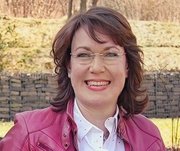
Cordula Borbe, Nordhausen University of Applied Sciences: "Inverted classroom as an experimental space in teaching: How can the workload be reduced and motivation increased?" (16.11., 11:45 a.m. Room 6.1.36 and BBB1) The inverted classroom has been an implemented teaching format in the course "Applied Methods and Project Management in Social Work" since 2022. The article deals with topics such as the intention for the teaching format, learning taxonomy, seminar logic and structure, framing through the Moodle accompanying course, feedback from students and a SWOT analysis as a tool for your own reflection as a teacher. The article focuses on the topic of activation. The central question is: How should an inverted classroom be structured in order to continuously activate and motivate students? Which didactic clusters can be found and transferred to other teaching formats? Add-on: How can universities network thematically within an inverted classroom?
Contact: borbe[at]hs-nordhausen.de
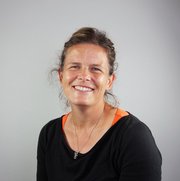
Milena Pfafferott and Uwe Hirte, Ilmenau University of Technology: "Interactive teaching in the library - is that possible?" (16.11., 13.45, Room 6.1.36 and BBB1)
For a year now, Ilmenau University Library has not only been a central place of learning at Ilmenau University of Technology, but has also become an important place of teaching. The university library has systematically redesigned an area and made it available for testing interactive teaching and learning formats. In cooperation with the Central Institute for Education and the Department of Product and System Development of the Faculty of Mechanical Engineering, a usage concept for this "LERNWELT" was developed for skills-oriented learning and teaching and the technical design was implemented. In a two-semester pilot phase, the Department of Product and System Development at the Faculty of Mechanical Engineering, as an important project partner, used the conditions created in agile teaching as part of development methodology training. In view of the growing importance of agile developments, the aim is to integrate agile aspects into consecutive teaching. Building on this experience, the opportunities offered by the learning environment will also be used in other teaching modules in the future. The learning world in the library has thus become a multifunctional experimental space for innovative teaching formats.
Contact: milena.pfafferott[at]tu-ilmenau.de
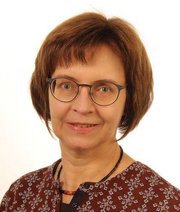
Sabine Ziebarth, University of Erfurt: "See you later in the library ... - Media-enriched teaching of information literacy at Erfurt University Library" (16.11., 13.45, Room 6.1.36 and BBB1) Based on the statement that libraries have always been places of media-supported and independent learning, examples of media-enriched teaching and promotion of information literacy at Erfurt University Library will be presented. The aim is to draw attention to the methodological-didactic and technical challenges for the librarians involved, the current implementation and wishes for the future. Furthermore, offers and possibilities for integrating library-related learning content into university teaching will be presented in order to achieve even more intensive cooperation between the library, teaching staff and students in the design of virtual and real learning spaces.
Contact: sabine.ziebarth[at]uni-erfurt.de
Highlights
Highlights of change
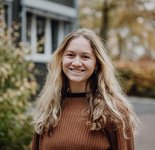
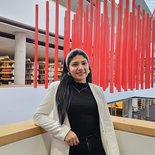
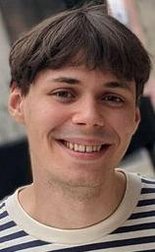
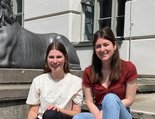
Alina Dieminger (SRH University Heidelberg), Ludwig Lorenz (Bauhaus University Weimar), Hanna Kerwin (University of Leipzig), Cynthia Seidel (German School of Journalism Munich), Shreesh Karmarkar, Paulina Denhí Gómez Escalona, Linda Cacéres Leal (University of Erfurt): From Ideas to Impact: How can student-led projects create sustainable change? A DigitalChangeMaker Accelerator panel on student-led change projects. (16.11, 10.30 a.m., Room 6.1.21 and BBB2) Get ready for an engaging panel discussion featuring students from three different projects aiming to drive meaningful change within their respective higher education institutions (HEI) and beyond. Together, they will explore the pivotal role students play in reshaping HEI by pioneering innovative approaches to teaching and learning from participation methods and processes to the use of AI tools. Projects "Digitalrat", "PartiDeck" and "AcademiAI" are part of the DigitalChangeMaker Accelerator, a fellowship program initiated by Stifterverband and Reinhard Frank-Stiftung. The students, who all come from different institutions and backgrounds, not only bring their unique insights into the digital transformation of higher education to the table, but also aim to dive into the practical implications of student change projects.
Contact: ludwig.david.lorenz@uni-weimar.de, alina.diem@freenet.de, shreesh.karmarkar@uni-erfurt.de, linda.caceres_leal@uni-erfurt.de, paulina.gomez_escalona@uni-erfurt.de, hannakerwin@gmail.com, cynthia.seidel@posteo.de
Highlights of participation
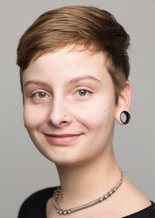
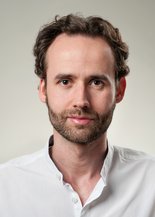
Larissa Barth and Ronny Schüler, Bauhaus-Universität Weimar: "Participation at eye level - students as teachers"(16.11., 11.45 a.m., Room 6.1.21 and BBB2) How can student participation be facilitated, particularly in the design of a cross-faculty teaching program? The Staatliches Bauhaus stands for interdisciplinary cooperation, internationality and participation. With the "Bauhaus.modules", these aspects are brought into the focus of transdisciplinary teaching and learning at today's Bauhaus-Universität Weimar and attractive opportunities for participation are created with the student teaching/learning projects. Starting in the 2019/20 winter semester, a format was created that allows students to place their own topics and work on them as part of a course. The aim of this initiative is to identify key topics that our students consider to be urgent and forward-looking beyond the regular subject curriculum. In our 15-minute presentation, we introduce this teaching format and explain the participatory opportunities and institutional challenges and reservations. In doing so, we not only want student teachers and their experiences to have their say, but also reflect on the organizational perspective.
Contact: larissa.barth[at]uni-weimar.de , ronny.schueler[at]uni-weimar.de
Highlights of participation
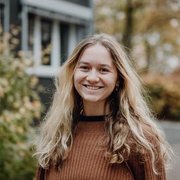
Alina Dieminger, psychology student and working student at KI Campus : Students at the limit: Implementing mindful participation in universities. (16.11, 11.45 a.m., Room 6.1.21 and BBB2) What role do students currently play, what does their everyday life look like and why do many of them not participate in the university? Nowadays, many students work alongside their studies in order to gain professional experience or to be able to afford to study at all. At the same time, universities want students to actively participate in the university, i.e. in teaching, in student councils, in projects or in committees. It is often not a lack of motivation on the part of the students that is responsible for the low level of participation at universities, but rather the circumstances. However, if only a few students actively participate in the university, then it is usually always the same students. There are various measures that universities can take to promote student participation, including recognition, social credits, expense allowances and more support for students. However, universities must also pay attention to the mental health of students: over 60 percent of students currently or in the last 12 months feel exhausted due to stress. When it comes to student participation, it is important to pay attention to students' mental health. In this spotlight, we want to provide methods and tips on how to implement mindful participation at universities.
Contact: Alina.diem[at]freenet.de
Highlights of the future
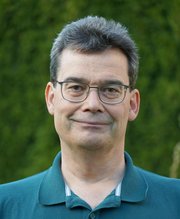
Dirk Schmalzried, Ernst Abbe University of Applied Sciences Jena: "Metaverses for the digital university of tomorrow" (1.45 pm, Room 6.1.21 and BBB2) In the spotlight, a brief overview of the possible applications of metaverses in teaching will be given. To this end, real-life metaverses will be briefly presented based on their characteristics. In addition, reference is made to a survey of >50 students as to whether they can imagine studying partly in a metaverse. This overview of functions, costs and availability could help interested colleagues who are considering going to the metaverse themselves.
Contact: dirk.schmalzried[at]eah-jena.de
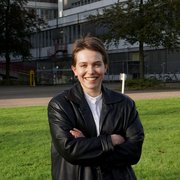
Lea Bachus, Bielefeld University: "The journey to student centricity - success story or never-ending story?" (1.45 p.m., Room 6.1.21 and BBB2) For us, student-centricity means: - not just thinking about students, but above all thinking with students, - not just talking about students, but above all talking with students, and - not just designing for students, but above all designing with students. In a discussion paper published by the Hochschulforum Digitalisierung (HFD) in 2023, we have compiled concrete measures, suggestions and aspects for various areas from a student perspective (see appendix). These relate to courses, learning projects and the organization of universities. So far, so good in theory, but practice is a completely different matter. Papers and theories are not enough. But how do we start the journey to student-centeredness from here? With another lecture? No, enough is enough. Let's try something out: Based on our reflections formulated in the discussion paper, we would like to question together with the audience where we actually are on this journey. What do we need to leave behind? What do we need to keep? And above all: What is the next step?
Contact: lea.bachus[at]uni-bielefeld.de
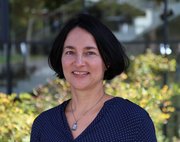
Bettina Bickelhaupt, Ernst Abbe University of Applied Sciences Jena: "From the lecture hall to the patient's bedside - effective theory-practice transfer through simulation in the SkillsLab" (1.45 pm, Room 6.1.21 and BBB2) The Ernst Abbe University of Applied Sciences (EAH) Jena offers five primary qualifying degree courses in the therapy and healthcare professions: Emergency Care, Nursing, Midwifery Sciences and Occupational Therapy and Physiotherapy. At the start of the 2023 summer semester, the SkillsLab moved into its new premises at the EAH so that all students in the Faculty of Health and Nursing can benefit from learning at the "third learning location". Building on the practice of practical skills, it is now also possible to master complex situations in the form of course-specific or interdisciplinary simulation scenarios. Students on all five degree courses can thus expand their technical and communication skills as well as their teamwork and reflection skills. The use of digitalized teaching/learning materials in blended learning format enables this time-consuming but extremely sustainable form of learning in a protected space.
Contact: bettina.bickelhaupt[at]eah-jena.de
Encore!
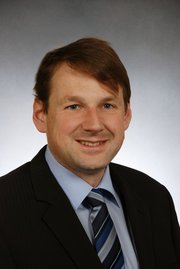
Christian Döbel, Gera-Eisenach Cooperative State University: "Interactive learning status survey - drawing conclusions about students' skills from the results." (16.11., 10.30 a.m., 6.1.19 and BBB3)
The aim of the work is to automatically evaluate students' solutions to a task. The formulation of the task allows for individual solution approaches. Relevant parameters for assessing the quality of the solution should be recorded during the assessment. By relating the task to the competence to be determined, conclusions can be drawn about the students' level of competence. Testing takes place in the labs for the automation technology lecture on programming industrial control hardware.
Contact: christian.doebel[at]dhge.de

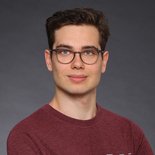
Tobias Tefke and Ralf C. Staudemeyer, Schmalkalden University of Applied Sciences: "Establishing a decentralized ethical security hacking lab." (16.11., 10.30 a.m., 6.1.19 and BBB3)
For 2.5 years now, the Schmalkalden University of Applied Sciences has had a virtual laboratory that is available to students of the Faculty of Computer Science around the clock as a web application (hereinafter referred to as SUASecLab). It contains virtual computer rooms on which small computers located in the lab can be programmed in groups from home and in a decentralized manner. This makes it possible to use physical laboratory hardware online. The lab itself was developed by students as part of the "Mobile Security" course in the summer semester 2021 based on the open source software "WorkAdventure". All modified or newly developed software components (such as an exam mode) were also developed by students and are available under open source licenses. This enables the further use and expansion of existing components by other institutions. This laboratory has now been expanded to include a virtual ethical security hacking area. This is a virtual computer room which is also permanently available to students. The newly created lab area enables security checks to be carried out in a secure environment. Students can learn how to use ethical hacking tools responsibly, with the guarantee that no real damage can be caused. The SUASecLab and the newly added area show that students can develop an environment conducive to learning themselves.
Contact: t.tefke[at]stud.fh-sm.de
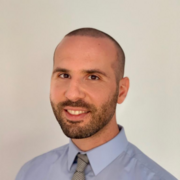
Andreas Apostolatos, MathWorks: "Automated evaluation of programming tasks with MATLAB Grader - application scenarios and sample tasks." (16.11., 10.30 a.m., Room 6.1.19 and >>>BB3) The state-wide MATLAB license provides Thuringian universities with numerous tools and teaching and learning resources as well as MATLAB Grader, a tool for the automated evaluation of programming tasks. This tool not only allows teachers to significantly reduce the amount of correction work for programming tasks. Students also benefit from quick and direct feedback. By collecting additional metrics from the submitted solutions, it is possible to address students' problems more specifically in lectures. The focus will be on MATLAB Grader. In addition, we would like to discuss possible application scenarios for MATLAB Grader that go beyond the mere evaluation of programming tasks. We will discuss these scenarios using freely available example tasks from various subject areas.
Contact: aapostol[at]mathworks.com
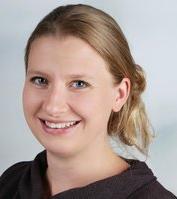
Anna Hertlein, Ilmenau University of Technology: "examING - Digitalization of competence-oriented testing in engineering bachelor's degree courses" (16.11., 11.45 a.m., 6.1.19 and BBB3)
"examING - Digitalization of competence-oriented testing in engineering bachelor's degree courses" is an internal university project at the TU Ilmenau, which is funded by the Foundation for Innovation in Higher Education. As a technical university, education at TU Ilmenau is very much focused on mechanical engineering, electrical engineering, computer science, natural sciences and mathematics. This results in challenges in the digitalization of competence-oriented testing. The technical presentation of formulas, diagrams, sketches, drawings, etc. is very challenging with the usual equipment (laptop, "simple" tablet, especially under the BYOD requirement) and therefore not suitable for checking the acquisition of skills. Another aspect that must be taken into account in the digitalization of engineering education is the need for practical work. For this reason, internships are not only an important part of everyday teaching, but also of performance assessment. The examING project addresses both challenges and attempts to prepare students in the best possible way for the requirements of their changing working environment by redesigning or further developing alternative examination scenarios, using technical aids and software and providing digital support for practical work.
Contact: anna.hertlein[at]tu-ilmenau.de
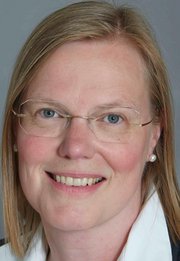
Nicola Henze, Ilmenau University of Technology: Solutions for digital, competence-oriented testing in engineering degree programs. (16.11., 11.45 a.m., 6.1.19 and BBB3)
Exams have a decisive influence on the entire learning process. Even if they often only take place at the end, they influence what is learned and how it is learned: As a participant in a course, to what extent do I have to deal with the learning content in order to pass the exam? If an exam is designed in such a way that superficial knowledge is sufficient to pass, it is an effective and efficient strategy to only deal with the learning content superficially. If, however, in-depth knowledge is required and demanded as part of the exam, students will study accordingly to prepare for the exam, as the aim is to pass successfully. The question that arises is what an appropriate, digital examination design looks like and how it can be realized - adapted to the respective subject-specific challenges. The (further) development of solutions for this is the central concern of the examING project funded by the Foundation for Innovation in Higher Education - Digitalization of competence-oriented testing for engineering bachelor's degree courses.
Contact: nicola.henze[at]tu-ilmenau.de
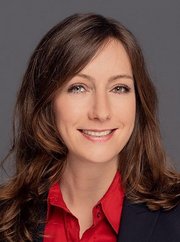
Leyla Dörflinger, UNIWise: "Digitalization of the examination process at universities." (16.11., 11.45 a.m., 6.1.19 and BBB3) UNIwise helps universities to take advantage of the benefits of digital exam delivery.WISEflow, our digital exam platform, manages the entire exam and feedback lifecycle for a wide range of exam types and formats.While working in higher education, our founders recognized the need for digital examination and used their experience in research and management to develop WISEflow, a platform that meets the needs of both teaching and learning and administration. In this way, WISEflow helps universities to modernize the examination process, ensure consistency, improve feedback and increase student satisfaction. UNIwise employees are higher education professionals and more than 100 institutions across Europe rely on our expertise to improve their students' learning and transform education into the digital world.
Contact: Leyla.Doerflinger[at]uniwise.eu
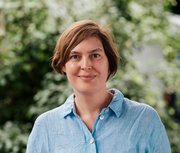
Judith Dobler, Anhalt University of Applied Sciences: "VR photo studio - interdisciplinary teaching and learning experiment by students of design and computer science" (16.11., 13.45, 6.1.19 and BBB3)
"VR Photo Studio" is an interdisciplinary teaching/learning project developed jointly by students from the Department of Computer Engineering and the Department of Design at Anhalt University of Applied Sciences. The project is based on a bottom-up approach with peer-to-peer learning, in which the students develop a virtual photo studio with VR technology from scratch in a collaborative team effort. The didactic teaching/learning formats developed in the project are intended to enable students to develop, communicate and implement technological project developments in a self-motivated manner. Dissonances regularly occur in interdisciplinary collaboration, which are used productively as part of the work process and for the quality of the teaching and learning outcomes. The article discusses the "VR photo studio" project and the dissonances that occur from different perspectives: didactically from the point of view of the teachers, technologically from the point of view of the computer engineers (developers) and creatively from the point of view of the designers (artists). The project results in the form of "learning nuggets" are presented and an outlook for further use is outlined. The "VR Photo Studio" is a sub-project of the "Digital Photography Workshop", which has been developed as part of praxwerk - participatory digital teaching at the Department of Design at Anhalt University of Applied Sciences since 2022. The aim of the digital photography workshop is to develop e-learning offers for practical workshop work with a focus on virtual reality (VR) technology. The advantage of immersive VR technology lies in testing and researching the substitution or compensation of practice-oriented training units in workshops and laboratories. Praxwerk pursues an experimental and open-ended design approach that uses methodical interaction and the participation of all stakeholders to think and practice technological development from the perspective of the users. This bottom-up approach is intended to involve students in particular in peer-to-peer learning formats.
Contact: judith.dobler[at]hs-anhalt.de
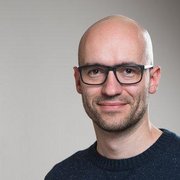
Sven Schneider, Bauhaus University Weimar: "Virtual reality-based user studies in architectural education." (16.11., 13.45, 6.1.19 and BBB3) Virtual reality makes it possible to experience a building on a 1:1 scale during the planning process. The technology therefore has great potential to capture the perspective of future building users. In order to systematically investigate the behavior and experience of buildings from the user's perspective, we have developed software that allows architects to easily design, conduct and evaluate user studies in VR. In the lecture, we will present our experiences with the use of such VR-based user studies in architectural education.
Contact: sven.schneider[at]uni-weimar.de
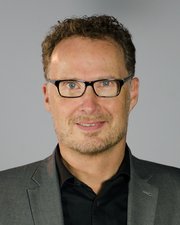
Rolf Kruse, Erfurt University of Applied Sciences: "Cross-university XR network uniVERSEty." 16.11., 13.45, 6.1.19 and BBB3) Development, establishment and networking of virtual spaces at universities. Teaching and learning together in the metaverse - a vision that is becoming increasingly important, especially for universities. Interested parties have come together in the uniVERSEty network to exchange experiences and get to know each other's possibilities.
Contact: rolf.kruse[at]fh-erfurt.de

